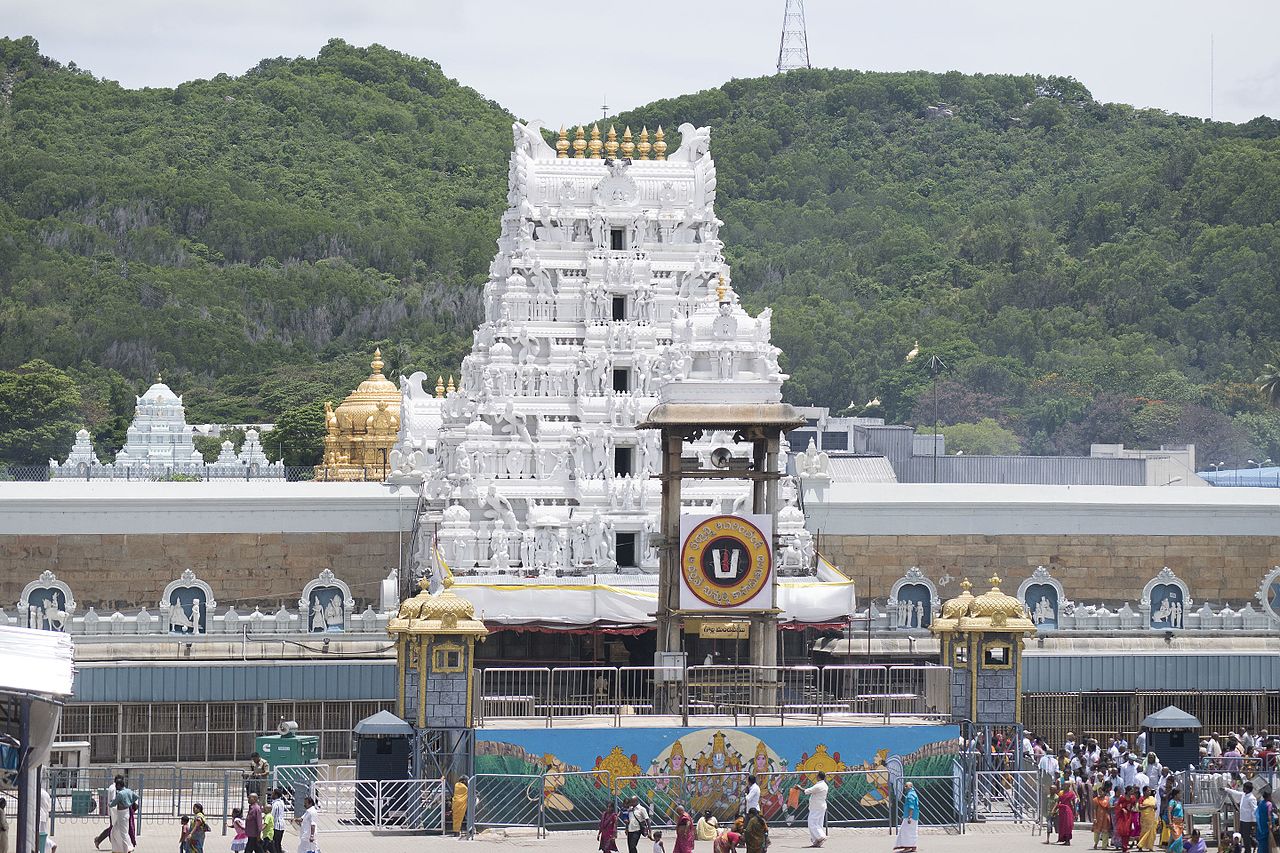When it comes to sacred places in India, and TTD’s land swap deal has become the center of a heated political debate. The Tirumala Tirupati Devasthanams – the trust that manages the famous Tirupati temple – just made a decision that’s got both supporters and critics raising their voices.
Let’s have a look what’s really going on behind the scenes.
The Deal That Started It All
TTD’s land swap deal involves exchanging 25 acres of prime temple land in Tirupati with the Andhra Pradesh Tourism Department. But this isn’t just any ordinary property exchange – we’re talking about land worth nearly ₹1,500 crore being swapped for what critics say is much less valuable rural property.
The temple trust says deal is all about protecting the sacred Tirumala Hills. They want to make sure the northern area near the holy site stays under their control, so they’re giving up southern land along the Alipiri-Cherlopalli Road instead.
Sounds reasonable, right? Well, that’s where things get complicated.
The Oberoi Hotel Connection

This is where TTD’s land swap deal gets really interesting. Former TTD chairman Bhumana Karunakar Reddy has made some serious allegations. He claims the whole thing is designed to help Oberoi Hotels build a luxury property near the sacred hills.
“Chief Minister N. Chandrababu Naidu orchestrated the transfer of high-value TTD property to Oberoi Hotels through a questionable exchange,” Reddy alleged, suggesting deal could result in massive losses for the temple trust.
The opposition politician says TTD’s land swap deal could cause losses exceeding ₹1,000 crore for the temple administration. That’s a huge amount of money that belongs to devotees who donate to the temple.
Timeline of Decisions
TTD’s land swap deal didn’t happen overnight. The temple trust passed resolutions in November 2024, May 2025, and July 2025, all seeking to cancel the original land allotment to the tourism department.
A special TTD board meeting was organized on May 7, 2025, to approve the exchange, with a government order following on August 7, making the deal official. But here’s what’s raising eyebrows – critics say the land values weren’t even mentioned in the meeting agenda.
Why would you discuss TTD’s land swap deal worth thousands of crores without talking about the actual values involved?
The Religious Angle
TTD officials defend their position by saying TTD’s land swap deal is all about protecting religious sentiments. They argue that having commercial activities too close to the sacred Tirumala Hills would hurt devotees’ feelings and disturb the spiritual atmosphere.
“The decisions have been made to protect the sanctity and safety of the Tirumala Hills and to accommodate devotees’ future needs,” the temple administration stated about TTD’s land swap deal.
The trust also maintains that the deal ensures the northern site adjacent to the sacred hills remains under their control, while structures that already exist on the southern land get transferred to the Tourism Department.
Opposition’s Strong Response

The YSR Congress Party isn’t buying the official explanation for TTD’s land swap deal. They’ve accused the current government of compromising temple lands for commercial interests.
Former chairman Bhumana Karunakar Reddy raised several pointed questions about the deal deal. Why wasn’t the land value mentioned in the agenda? Why was property donated by devotees referred to as “Inam land”? These questions are making people wonder about the transparency of the entire process.
The opposition claims this deal is part of a larger plan to allow luxury hotel development despite previous objections when the same political leaders were in opposition.
The Hotel Project Controversy
The proposed luxury hotel project that’s connected to TTD’s land swap deal has faced criticism before. Many religious groups and individuals in Andhra Pradesh have raised concerns, saying such a project would hurt religious sentiments and the sanctity of the Seven Hills.
The original plan, passed in 2021, proposed a large-scale luxury tourism project with significant incentives. The developer would get a 100% refund of State GST for five years and electricity subsidies. TTD’s land swap deal has now become part of this larger controversy.
“As the said place is adjacent to the Tirumala Hills, such activities might hurt the sentiments of Hindus,” officials had said about the hotel project, which makes this deal even more significant.
Financial Implications
Let’s talk numbers. The land being given up through TTD’s land swap deal is located in a prime area of Tirupati and is valued at nearly ₹1,500 crore. In return, the temple trust is getting rural land that critics say is worth much less.
If the allegations are true, this deal could result in a loss of over ₹1,000 crore for the temple trust. That’s money that could have been used for temple maintenance, devotee services, or religious activities.
The temple trust, which has assets worth ₹3 trillion, shouldn’t be making deals that result in such massive losses, critics argue about TTD’s land swap deal.
Legal and Administrative Questions
Several legal questions surround TTD’s land swap deal. Did the trust follow proper procedures? Were all stakeholders consulted? Was there enough transparency in the decision-making process?
The fact that land values weren’t mentioned in the board meeting agenda for the deal has raised red flags. When you’re dealing with property worth thousands of crores, shouldn’t financial details be front and center?
Critics also question why property donated by devotees was referred to differently in the documentation for TTD’s land swap deal.
Temple Trust’s Defense
TTD officials have strongly defended their decision. They say TTD’s land swap deal is not about individual benefit but about protecting Hindu religious interests and the sanctity of the sacred hills.
“The temple administration asserted that allegations regarding misuse of temple lands are unfounded and not in line with the devotees’ sentiments,” according to official statements about TTD’s land swap deal.
The trust maintains that TTD’s land swap deal ensures better protection of the Tirumala Hills while still allowing tourism development in appropriate areas. They argue the decision was made keeping devotees’ interests in mind.
What Devotees Are Saying
For millions of devotees who visit Tirupati every year, TTD’s land swap deal raises important questions about how their donations and trust are being managed. Many feel that temple lands belong to Lord Venkateswara and shouldn’t be used for commercial deals.
Some devotees support TTD’s land swap deal if it truly protects the sanctity of the hills. Others worry about the financial losses and potential misuse of temple property.
The debate around TTD’s land swap deal reflects larger concerns about how religious institutions balance spiritual obligations with practical management needs.
Political Implications
TTD’s land swap deal has become a major political issue in Andhra Pradesh. The ruling party says it’s about protecting religious sentiments, while the opposition calls it a scam designed to benefit private companies.
This controversy around TTD’s land swap deal comes at a time when temple management is already under scrutiny for various decisions, including recent issues with laddu ingredients and staff policies.
The political dimension of TTD’s land swap deal shows how religious and commercial interests often clash in modern India.
Looking Ahead
As the debate continues, several questions about TTD’s land swap deal remain unanswered. Will there be a detailed investigation into the land valuations? Will the deal proceed as planned, or will there be modifications based on the criticism?
The outcome of this controversy around TTD’s land swap deal could set important precedents for how temple trusts handle their valuable assets. It might also influence public trust in religious institutions’ decision-making processes.
For now, TTD’s land swap deal remains a hot topic that highlights the complex challenges facing religious institutions in managing their temporal affairs while maintaining spiritual integrity.
